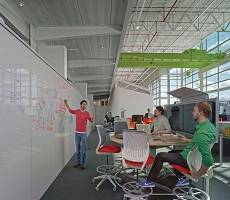July 23, 2014
There is a moral imperative to meet global standards in workplace performance
 Many corporate organisations now operate on a global scale, with operations spread across a number of countries and continents. But while they are geographically diverse, they nevertheless have a requirement to meet measurable standards of performance, delivered on a consistent basis regardless of location. If something works well in one country, companies want to be able to replicate it in all others. Wherever standards relating to compliance, health and safety, sustainability, leadership or management are most rigorous, it makes good business sense to employ those same standards wherever they have a presence. But from the collapse of a building full of factory workers in Bangladesh to the death of hundreds of construction workers in Qatar, the need to promote and adhere to international standards is more than a matter of mere commerciality.
Many corporate organisations now operate on a global scale, with operations spread across a number of countries and continents. But while they are geographically diverse, they nevertheless have a requirement to meet measurable standards of performance, delivered on a consistent basis regardless of location. If something works well in one country, companies want to be able to replicate it in all others. Wherever standards relating to compliance, health and safety, sustainability, leadership or management are most rigorous, it makes good business sense to employ those same standards wherever they have a presence. But from the collapse of a building full of factory workers in Bangladesh to the death of hundreds of construction workers in Qatar, the need to promote and adhere to international standards is more than a matter of mere commerciality.






















July 25, 2014
We may not know what the future holds, but we can certainly be prepared for it
by Justin Miller • Comment, Facilities management, Furniture, Workplace design
(more…)